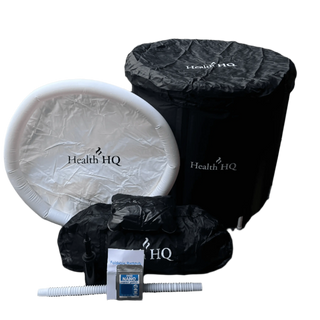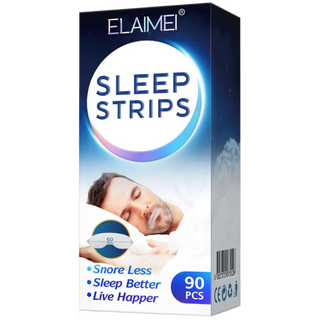Hydration: an essential guide to hydrating for performance and health
Introduction:
Everyone wants to feel and perform at their best. Being properly hydrated is not only essential for life but it can also greatly impact our performance both physically and mentally. This is why it is essential that you get your hydration right so you can feel and perform your best. Water plays many vital roles in our bodies. It makes up roughly 60% of our body and it regulates body temperature, lubricates the joints, and acts as a catalyst for a number of different reactions in the body. This post will go through how hydration levels impact performance, some hydration guidelines, and more.
Hydration and performance:
Drinking water and being properly hydrated enhances blood flow to working muscles and improves thermoregulation during exercise. After exercise replacing fluids is needed to effectively transport nutrients to the cells as well as decreasing blood pressure and heart rate back to normal resting values (Larson & Woodruff ,2016)
When it comes to maximizing performance, hydration is key. When your body mass is reduced by only 2% due to dehydration you get fatigued easier (Benton & Young, 2015). This is especially true in hot environments, and can actually increase your risk of suffering a heat injury (Shirreffs, 2005). When you get dehydrated even further to 5% body mass lost, your Vo2max can be impaired, and your work capacity can be reduced by up to 30% (Jeukendrup & Gleeson, 2024).
Dehydration can also negatively impact your cognitive performance. Being dehydrated by just 2% can impair your attention, and memory (Adan, 2012). It can also affect your mood and decrease your alertness (Benton & Young, 2015).
Hydration Guidelines:
How much water you need drink is different for everyone and depends on a variety of factors including age, gender, activity level, and environment. However, there are some general guidelines people should consider. For sedentary adults the general consensus seems to be 1.5-2l per day (Jéquier, & Constant, 2010).
When exercising you lose a lot of fluids through sweat, this means you need to increase the amount of water you’re drinking. The National Athletic Trainers’ Association recommends that 2-3 hours before a training session or competition athletes should drink 500-600ml of water or a sports drink, and another 200-300ml 10-20 minutes before training/competition. During the session they should be drinking 200-300ml roughly every 10-20 minutes. After training/competition they should try to replace any fluid lost during the physical activity (Judge et al., 2021). When it comes to hydrating during sauna sessions, drink 500ml of water per 10 minutes in the sauna either before, during, or after.
Interestingly enough, drinking too much water can almost be more dangerous than not drinking enough. Drinking too much water in a short period of time causes the concentration of sodium in your blood to drop which can be quite dangerous (Larson & Woodruff ,2016). To mitigate the risk of this drink fluids with electrolytes during long-duration exercise and avoid drinking too much water.
Electrolytes:
When it comes to hydrating throughout the day water still remains on top. However, during exercise electrolytes are lost in sweat so it is important to replace them post exercise. Electrolytes are minerals that regulate fluid balance, nerve conduction, and muscle contractions. These minerals include sodium, chloride, potassium, calcium, and magnesium. In sweat it is largely sodium and chloride that are lost so adding a bit of salt to your water or drinking a sports drink can be beneficial in replacing the lost electrolytes (Jeukendrup & Gleeson, 2024). When it comes to the other electrolytes lost in sweat, drinking a glass of orange or tomato juice replaces pretty much all of the potassium, calcium, and magnesium lost in roughly 3 L of sweat.
How to tell if you’re dehydrated:
There are many different ways to test hydration levels but the easiest way for everyday people is to monitor the color and volume of your urine. Lighter colored urine is a sign of adequate hydration. However, if your urine is dark yellow and has a strong odor it means you need to keep drinking water.
Conclusion:
In conclusion, hydration is important as it can have a massive impact on our physical and cognitive performance. This includes your mood, work capacity, attention, and memory. How much water you need depends on the individual but for sedentary adults roughly 1.5-2l a day seems to be a good goal. If you live in a hot climate or if you are active your fluid needs will increase. If you are sweating a lot, electrolytes should be replenished post exercise.
References:
Adan, A. (2012). Cognitive performance and dehydration. Journal of the American College of Nutrition, 31(2), 71-78.
Asker Jeukendrup, & Gleeson, M. (2024). Sport Nutrition. Human Kinetics.
Benton, D., & Young, H. A. (2015). Do small differences in hydration status affect mood and mental performance?. Nutrition reviews, 73(suppl_2), 83-96.
Jéquier, E., & Constant, F. (2010). Water as an essential nutrient: the physiological basis of hydration. European journal of clinical nutrition, 64(2), 115-123.
Judge, L. W., Bellar, D. M., Popp, J. K., Craig, B. W., Schoeff, M. A., Hoover, D. L., ... & Al-Nawaiseh, A. M. (2021). Hydration to maximize performance and recovery: Knowledge, attitudes, and behaviors among collegiate track and field throwers. Journal of human kinetics, 79(1), 111-122.
Larson, A. J., & Woodruff, K. (2016). Sports Nutrition Strategies for Success: A Practical Guide to Improving Performance Through Nutrition. Momentum Press.
Shirreffs, S. M. (2005). The importance of good hydration for work and exercise performance. Nutrition reviews, 63(suppl_1), S14-S21.
By Tristan Logchies,
HealthHQ








